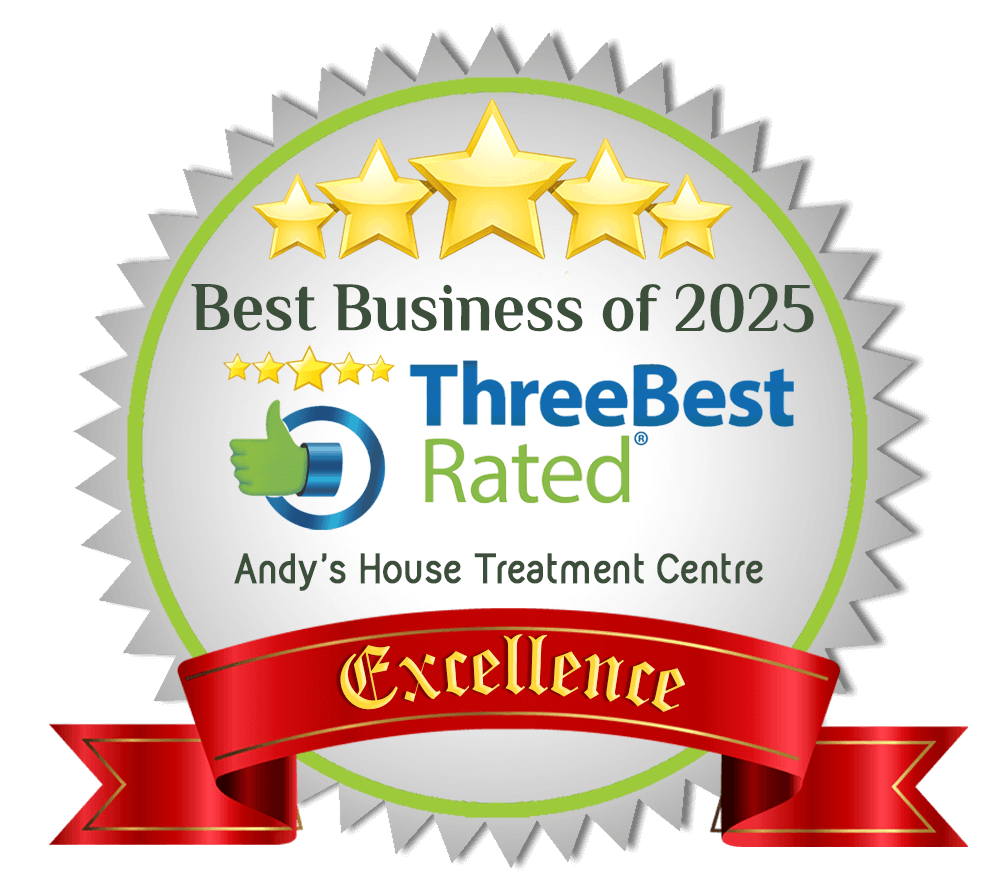90-Day Residential
Program
Get the personal attention and help that you deserve so you can reclaim your life.
A Comprehensive Residential
Treatment Program
For substance use disorder, including alcohol
…research has shown unequivocally that good outcomes are contingent on adequate treatment length. Generally, for residential or outpatient treatment, participation for less than 90 days is of limited effectiveness,…
— National Institute on Drug Abuse
2020, June 3. How long does drug addiction treatment usually last?-
Multidisciplinary
ProgramAs a resident, you will engage in a multidisciplinary rehabilitation program that includes a variety of behavioural health services to equip you with wellness and recovery tools that you can continue to use throughout your life.
Our unique treatment approach acknowledges that drug and alcohol addiction is a complex condition that involves social, cultural, psychological, physiological, and genetic factors.
The residential program combines treatment approaches such as The Minnesota 12-Step Model, Systemic Treatment Approaches, appropriate recreational and fitness activities, and a variety of therapeutic groups including psychoeducational, cognitive-behavioral, problem-solving, and interpersonal groups.
-
Group Therapy and
CounsellingThe heart of our recovery program involves group therapy and individual counselling. Group counselling provides individuals with the opportunity to connect with others who are going through similar experiences, share their thoughts and feelings, and receive support and encouragement from others. This approach can help individuals feel less isolated and alone in their struggles, as well as provide a sense of community and belonging. Group counselling can also be beneficial for learning new coping strategies, practicing social skills, and receiving feedback and support from peers.
Individual counselling offers a more personalized approach to treatment that focuses on the individual’s unique needs and goals. This one-on-one approach allows for in-depth exploration of personal issues and challenges, and the development of a treatment plan that is tailored to the individual’s specific needs. Individual counselling can also help individuals build trust and rapport with their counsellor, providing a safe and supportive environment for exploring sensitive or difficult issues.
-
Abstinence
The foundation of our drug and alcohol treatment program is based on abstinence. We use approaches to increase each person’s overall sense of value and self-worth, and promote positive, long-term changes in thinking, emotions, and behaviour.
We encourage residents to complement their treatment at Andy’s by using additional support, such as their fellowship sponsors, Alcoholics Anonymous, Narcotics Anonymous, and Cocaine Anonymous.
-
Minnesota Model
The Minnesota Model is an approach to addiction treatment that has been widely recognized for its effectiveness in helping individuals achieve and maintain sobriety. Key components of the Minnesota Model include a holistic approach to treatment that focuses on treating the whole person, not just the addiction. It also emphasizes abstinence as the primary goal of treatment and encourages individuals to take personal responsibility for their recovery.
Another key component of the Minnesota Model is the use of evidence-based therapies such as individual and group therapy, education on addiction and recovery, and participation in 12-step programs like Alcoholics Anonymous. These therapies help individuals develop the skills and coping mechanisms they need to overcome addiction and avoid relapse.
The Minnesota Model also places a strong emphasis on peer support and the involvement of family and loved ones in the recovery process. This can provide individuals with a sense of community and support and can also help to address the underlying issues that may have contributed to their addiction.
Overall, the benefits of the Minnesota Model include a comprehensive and evidence-based approach to addiction treatment, a focus on abstinence and personal responsibility, and a strong emphasis on peer support and family involvement. These elements have been shown to be effective in helping individuals achieve and maintain sobriety and lead healthier, more fulfilling lives.
-
Psychoeducational
GroupsPsychoeducational groups are designed to educate clients on substance abuse and its associated negative consequences. The goal of our psychoeducational groups is to instill self-awareness and provide the knowledge and tools clients need to take action in their recovery. This type of group offers structured, thematic content, taught through designated films and written assignments.
-
Cognitive-Behavioral
& Problem-Solving
GroupsCognitive-behavioural therapy groups work to change learned behaviour by challenging negative thinking patterns, beliefs, and perceptions and focus on altering behaviour, core beliefs, and problem-solving skills. Participants learn about various maladaptive thinking patterns, which can lead to destructive behaviour, as well as alternatives that usually result in healthier outcomes. Participants are encouraged to monitor their emotions and behaviour, particularly those associated with substance use, as they work towards setting, implementing, and achieving short- and long-term goals for themselves.
Watch Video -
Interpersonal Processes
ApproachAn interpersonal approach to counselling focuses on helping clients better identify and understand their social roles and relationship dynamics. Addiction can heavily impact an individual’s relationships, be they familial, friendship, professional or romantic, making interpersonal therapy an important part of recovery. Clients learn to express their emotions in healthy ways along with other skills to help improve current interpersonal relationships. Both the interpersonal and cognitive-behavioural approaches may be integrated into group and individual counselling services at Andy’s House.
-
Art Therapy
In treating addiction, art therapy allows individuals to explore, observe, and express their attitudes in a safe and constructive manner, rather than engaging in self-destructive behaviours. Our workshops include art-making, inspired by a theme proposed by the art therapist, and group discussion, in which participants share their art pieces and experience of the creative process. The practice of artistic decision-making increases one’s sense of personal agency and self-reliance by providing an alternative to harmful automatic behavioural responses.
Watch Video -
Cinema Therapy
Movie therapy group is a supplemental treatment that has been proven to be successful in helping clients work through a range of problems related to mental health and substance abuse. By engaging in “movie groups,” our clients explore the experiences of film characters whose struggles reflect their own. Using movies, we can assist them in confronting their emotions and coming to terms with their own issues in a safe and structured environment. All movies are selected with care.
-
Therapeutic Yoga
The practice of yoga and mindfulness unites the mind, body, and spirit through self-awareness. It teaches individuals to acknowledge and accept their experiences, without judgment or compensatory action. Yoga and mindfulness can provide an alternative way of addressing the negative emotions experienced by addicted persons. For example, instead of reacting to anger or fear in destructive ways, mindfulness can teach individuals to acknowledge and accept their unpleasant emotional experiences without responding to them.
Watch Video -
Physical Fitness at
the Andy’s House
GymAll Andy’s House residents have access to our in-house gym, fully equipped with cardio machines, free weights, exercise balls, and more. There are many benefits of exercise in addiction treatment, including:
- Improved Physical Health: Regular exercise can improve overall physical health and reduce the risk of many chronic health conditions, such as heart disease, obesity, and diabetes. This is particularly important for those in recovery who may have compromised their health during their addiction.
- Reduced Cravings: Exercise has been shown to reduce drug and alcohol cravings, which can be a major trigger for relapse. Exercise can also help to distract individuals from cravings and provide a healthier outlet for stress relief.
- Improved Mood: Exercise releases endorphins, which can improve mood and reduce symptoms of depression and anxiety. This can be particularly helpful for those in recovery who may experience mood swings and emotional instability.
- Increased Self-Esteem: Regular exercise can improve self-esteem and confidence, which can be particularly important for those in recovery who may have low self-esteem as a result of their addiction.
- Improved Sleep: Regular exercise can improve sleep quality and reduce insomnia, which can be particularly important for those in recovery who may have disrupted sleep patterns because of their addiction.
- Healthy Coping Mechanism: Exercise can provide a healthy coping mechanism for stress and negative emotions, which can help to prevent relapse and promote long-term recovery.
- Overall, exercise is an important component of addiction treatment and can have a significant impact on physical and emotional well-being in recovery.
Our outdoor pool is operational during the summer months, and long walks along the lake’s shore become part of our routine.
-
Detox Support
Detox support at Andy’s House is to provide supervision and support during the withdrawal phase from substances. Detoxification is a process aimed at eliminating drugs or alcohol from the body while managing the physical and psychological symptoms of withdrawal.
The main objective of detox support is to help patients withdraw safely and comfortably from substances, while reducing the risk of medical complications and ensuring their overall safety. Once detox is complete, residents can then proceed to the next phase of addiction treatment, which includes various interventions such as psychotherapy, group therapy, and ongoing support to assist in achieving and maintaining long-term recovery. Detox support alone is insufficient for the treatment of addiction; it only represents the initial step in the comprehensive addiction treatment process.
-
Psychotherapy
At Andy’s House Treatment Centre, we offer individual psychotherapy sessions to address the underlying causes and contributing factors of addiction. Our experienced and licensed psychotherapist works with each client individually to address their unique needs and goals.
Psychotherapy sessions at Andy’s House are an integral part of our comprehensive addiction treatment program and are designed to support clients in achieving lasting recovery. We are committed to providing a safe and supportive environment that fosters growth and healing for all our clients.
Watch Video
We Provide You
With Options For
Your Recovery
For individuals who are unable to commit to a residential program, we also offer an intensive outpatient program (IOP).

-
Our Informative FAQs
View Our FAQsOur FAQs can answer some
of your questions. -
Learn About Our Team
View Our StaffView our staff bios and learn more about the
caring experts at Andy’s House.

Associations, Certifications
and Memberships
Always in compliance with the highest standards of care.







